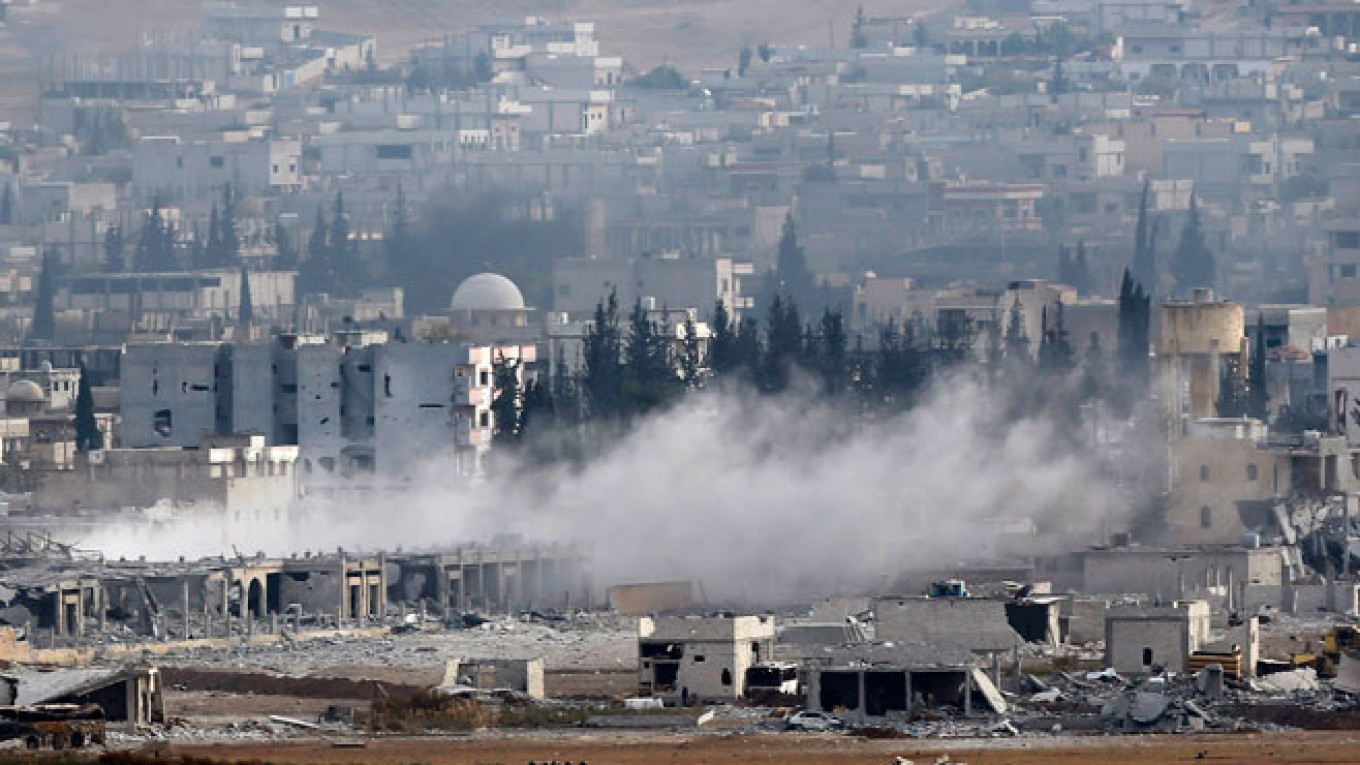For months, Islamophobia been simmering in Moscow, combined with the added xenophobia that has come to the fore under President Vladimir Putin. It appears that this narrative is solidifying in both policy and rhetoric.
The Central Asians in Russia, goes the narrative, are a threat. The soft underbelly of Russia lies open and if Moscow doesn't make a move, and soon, the Islamic State will soon be coursing through the streets of Moscow, brought by the street-cleaning Central Asians who have served as the vanguard of the group.
This fear has recently come to the fore among numerous officials and think tanks in Russia. Yevgeny Satanovsky, president of the Russian Institute of Middle Eastern Studies, led this rhetorical charge, stating that "all of Central Asia is within [the Islamic State's] reach." But he wasn't alone.
Stanislav Belkovsky, former director of the National Strategy Institute, noted that "all Islamic State threats are very real." Andrei Grozin, head of the CIS Institute's Central Asia department, said that "in the medium term, anything is possible" for the Islamic State in Central Asia. Alexander Konovalov, president of the Institute for Strategic Assessments, rounded out the hyperventilating by noting that "all threats from the Islamic State are more than serious" — and that this is somehow the greatest security threat facing Russia. The fascists steering Kiev are apparently on a break.
Lawmaker Roman Khudyakov recently proposed the composition of a "Russian Foreign Legion," comprising Central Asian nationals, to combat the Islamic State fighters "preparing an expansion into Central Asia and Russia." Even the recent arrests surrounding the "Grand Theft Auto gang" recently rocking Moscow have been tied to the Islamic State, pointing to Kyrgyz nationals as perpetrating the murders in the name of the group.
It would be one thing if these claims came with any reality backing them — if thousands of Central Asian nationals were streaming in to fight and then bringing their training and tactics back to an unprepared Moscow. If any of these realities were true, some of the rhetoric in Russia could be forgiven. But none of these claims stands up to scrutiny. And all of them reek of hyperbole, aimed at increasing security restrictions rather than offering any sane approach to regional stability.
There is no evidence that thousands of Central Asians have uprooted for the fighting swirling Syria and Iraq. While no concrete numbers yet exist, the most veritable estimates place Central Asians in the region at no more than 1,000 — a number that shouldn't be overlooked, but not one that poses a mortal threat to Russia or Central Asia.
Moreover, there's scant reason to believe that Central Asia presents any form of potential or impending target for the group. Radicalism remains a distant prospect for the striking majority of the population. The region has rarely factored into any of the bombast of the Islamic State's leadership. This isn't to mitigate the threat that these fighters pose to the region. Central Asian governments must find some way to deal with those nationals who do return in the future.
But overblowing the threat carries its own ramifications. Security structures tighten and expand. Moscow uses the Islamic State as a foil with which it can retain a relevancy in Central Asia — a region that has begun its inevitable shift toward China. The Central Asians forced to work as gutter-sweepers in Russia become more ostracized. Already maligned, millions of Central Asians suddenly see themselves painted in the colors of lurking Islamic State supporters, to be loathed even more.
Casey Michel is a graduate student at Columbia University's Harriman Institute. Follow him on Twitter at @cjcmichel.
A Message from The Moscow Times:
Dear readers,
We are facing unprecedented challenges. Russia's Prosecutor General's Office has designated The Moscow Times as an "undesirable" organization, criminalizing our work and putting our staff at risk of prosecution. This follows our earlier unjust labeling as a "foreign agent."
These actions are direct attempts to silence independent journalism in Russia. The authorities claim our work "discredits the decisions of the Russian leadership." We see things differently: we strive to provide accurate, unbiased reporting on Russia.
We, the journalists of The Moscow Times, refuse to be silenced. But to continue our work, we need your help.
Your support, no matter how small, makes a world of difference. If you can, please support us monthly starting from just $2. It's quick to set up, and every contribution makes a significant impact.
By supporting The Moscow Times, you're defending open, independent journalism in the face of repression. Thank you for standing with us.
Remind me later.








